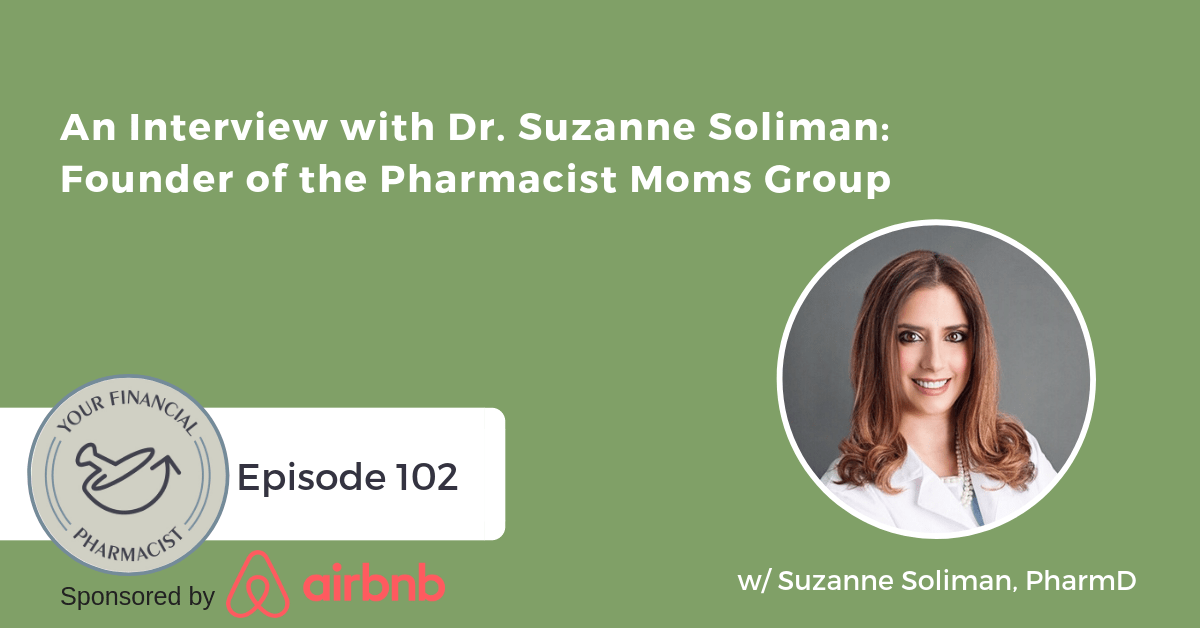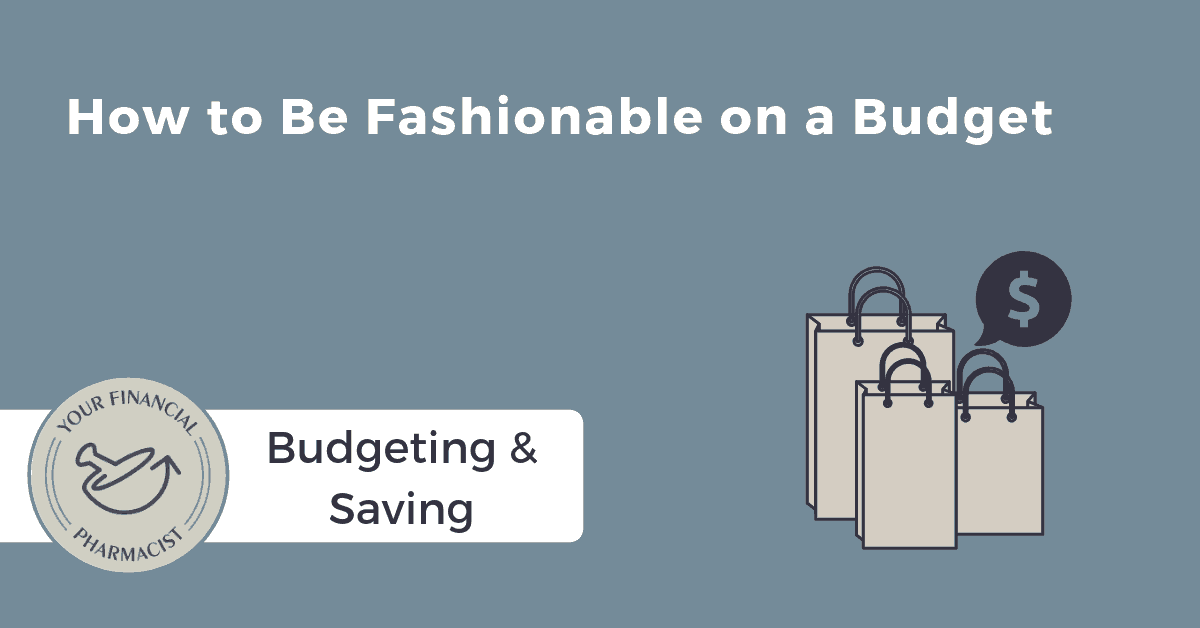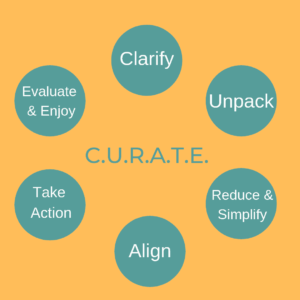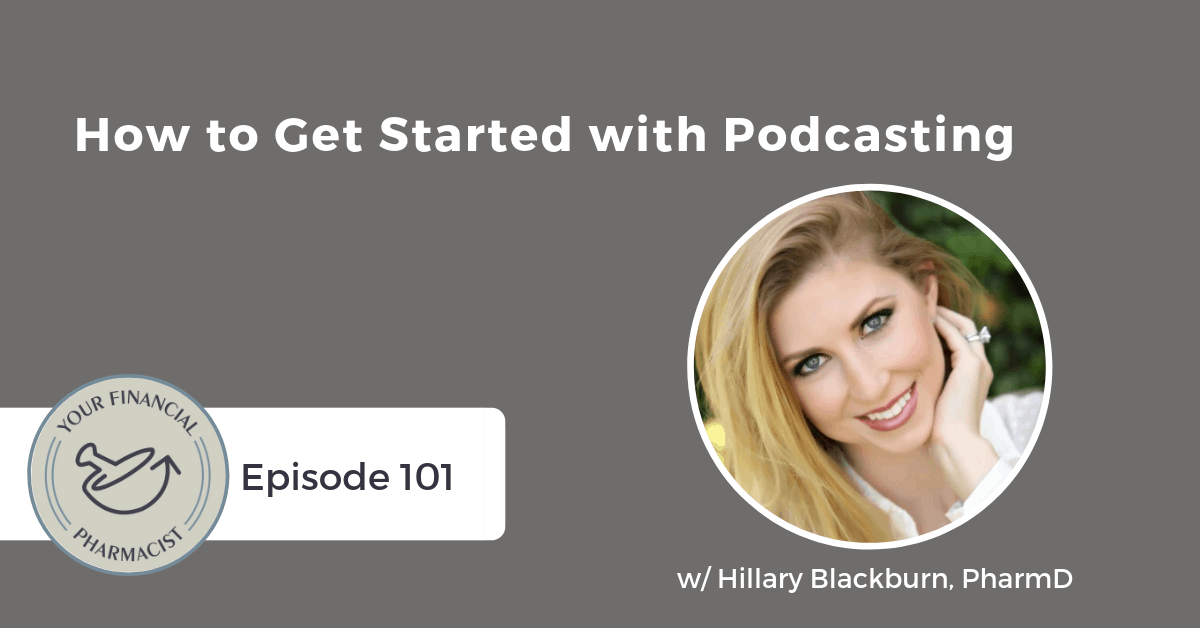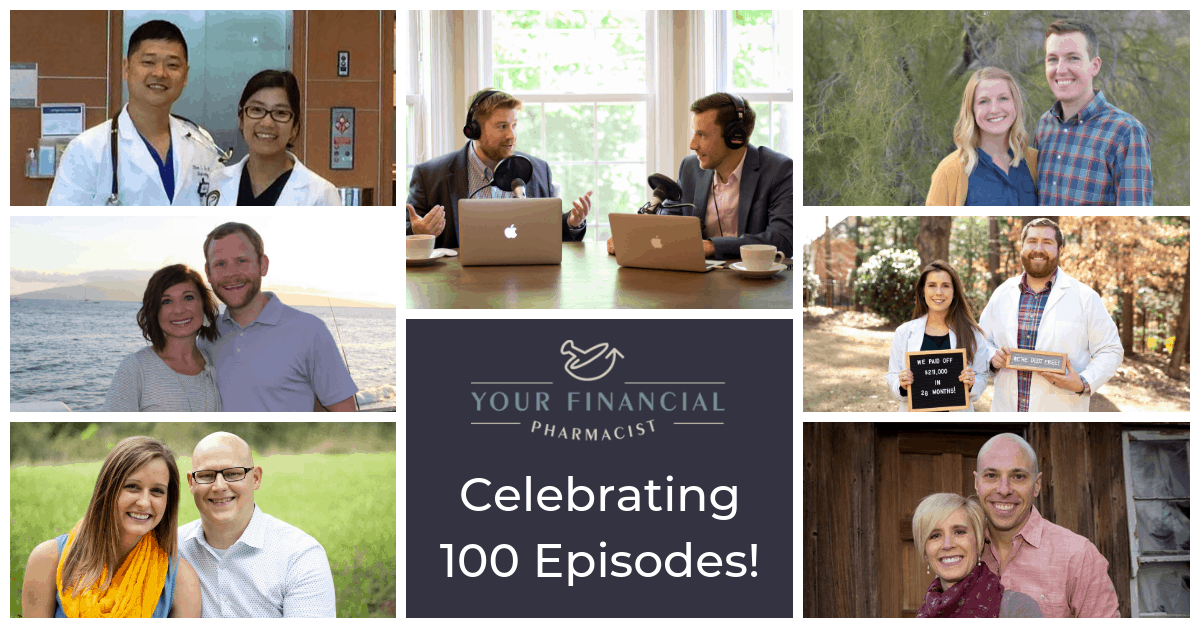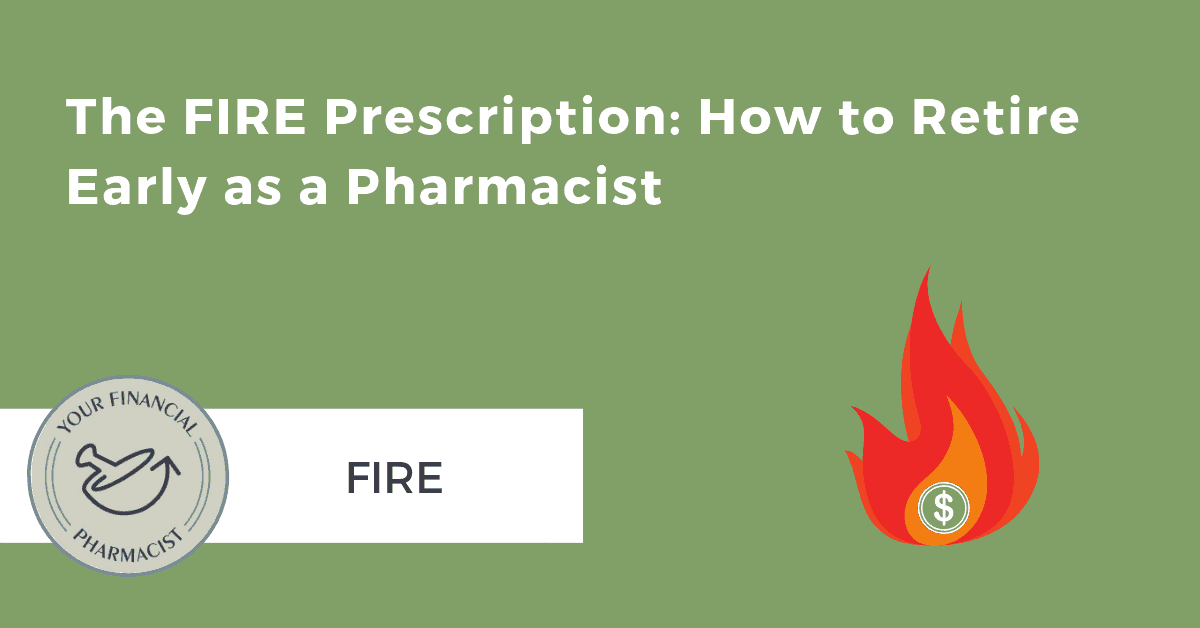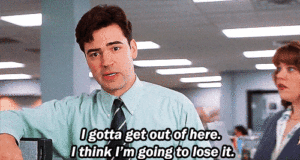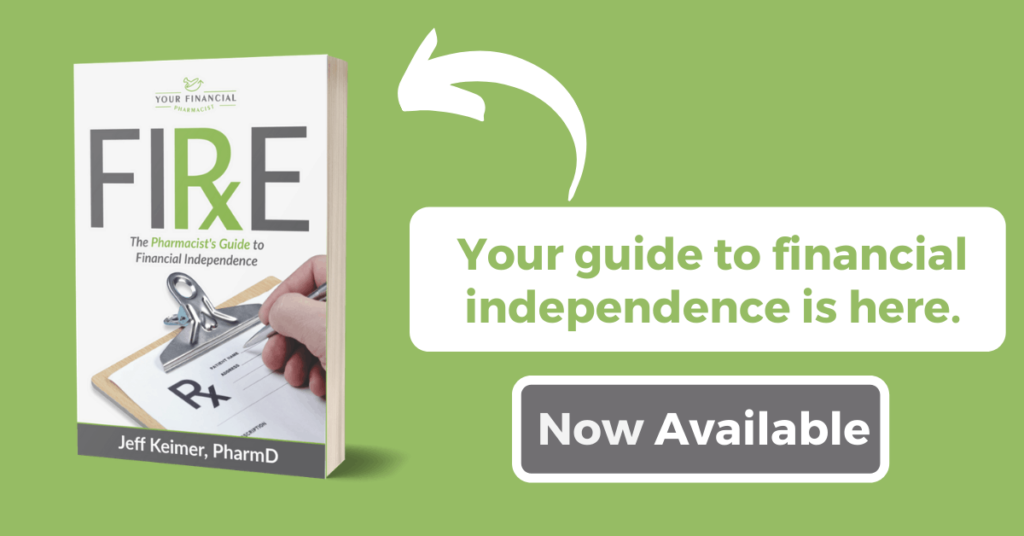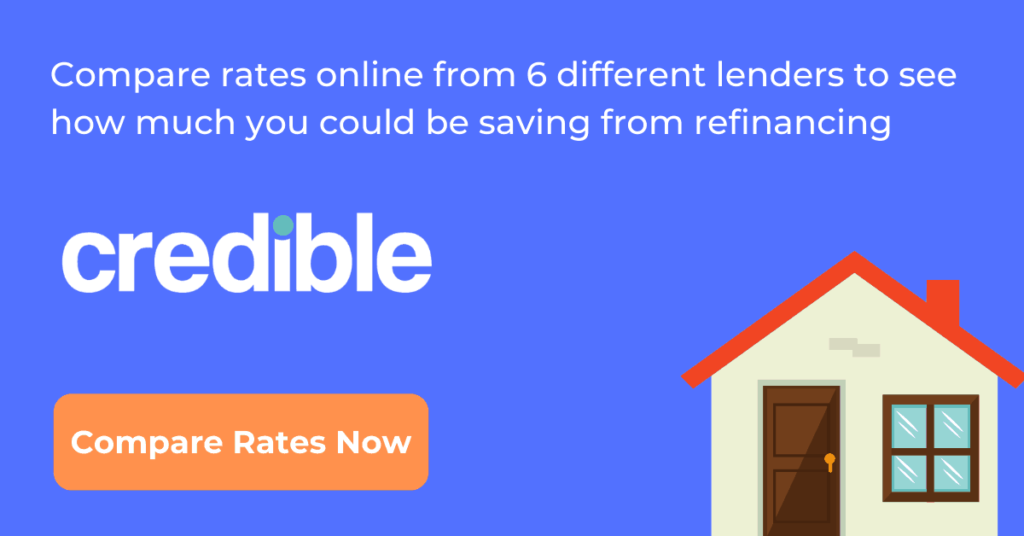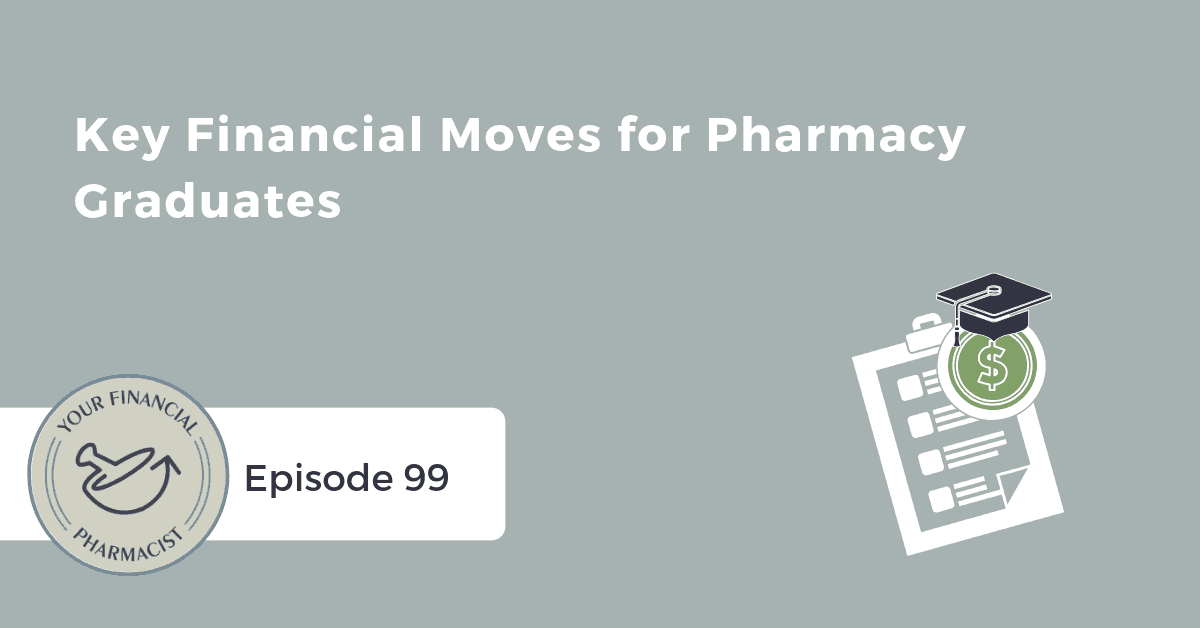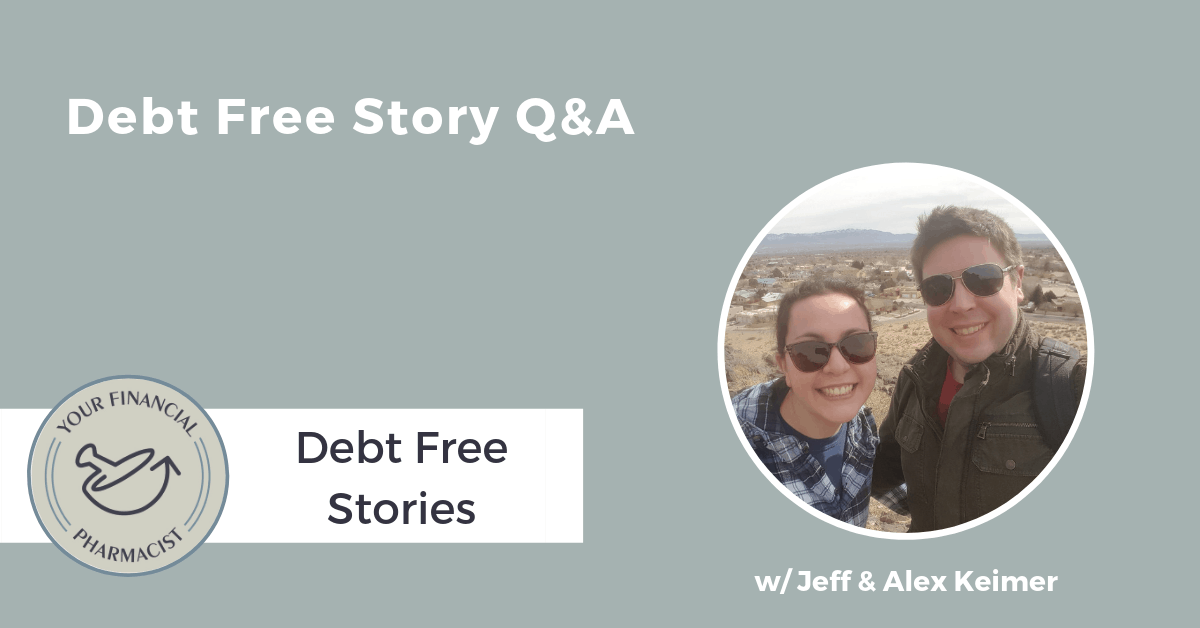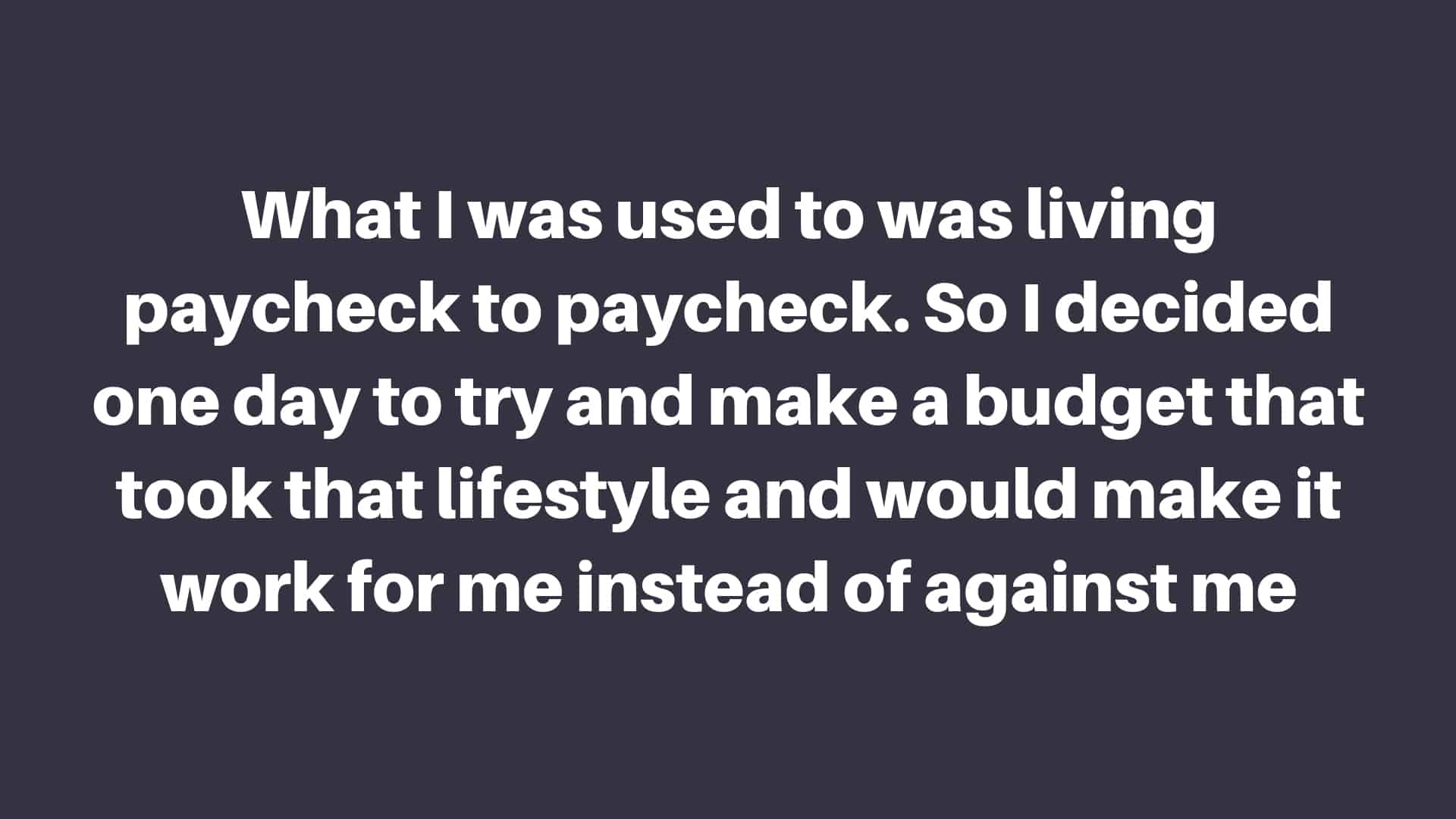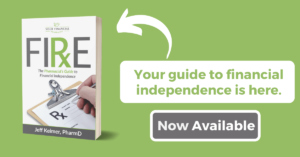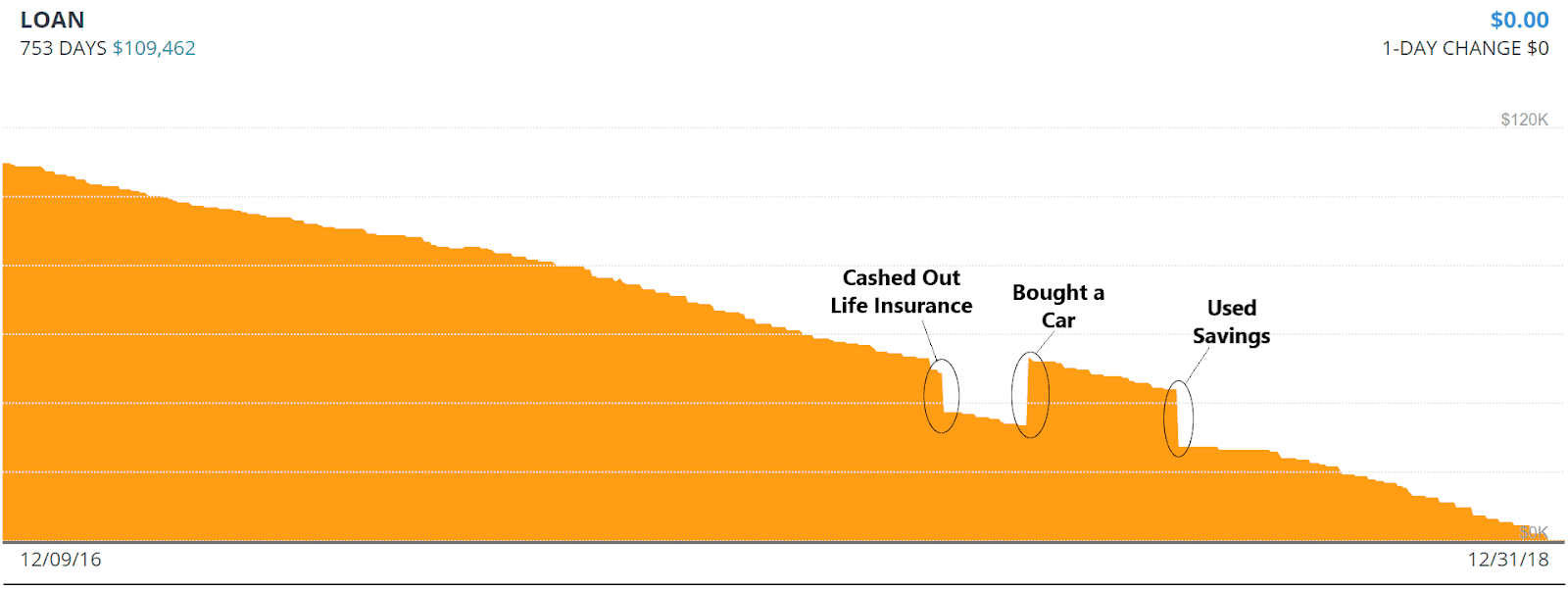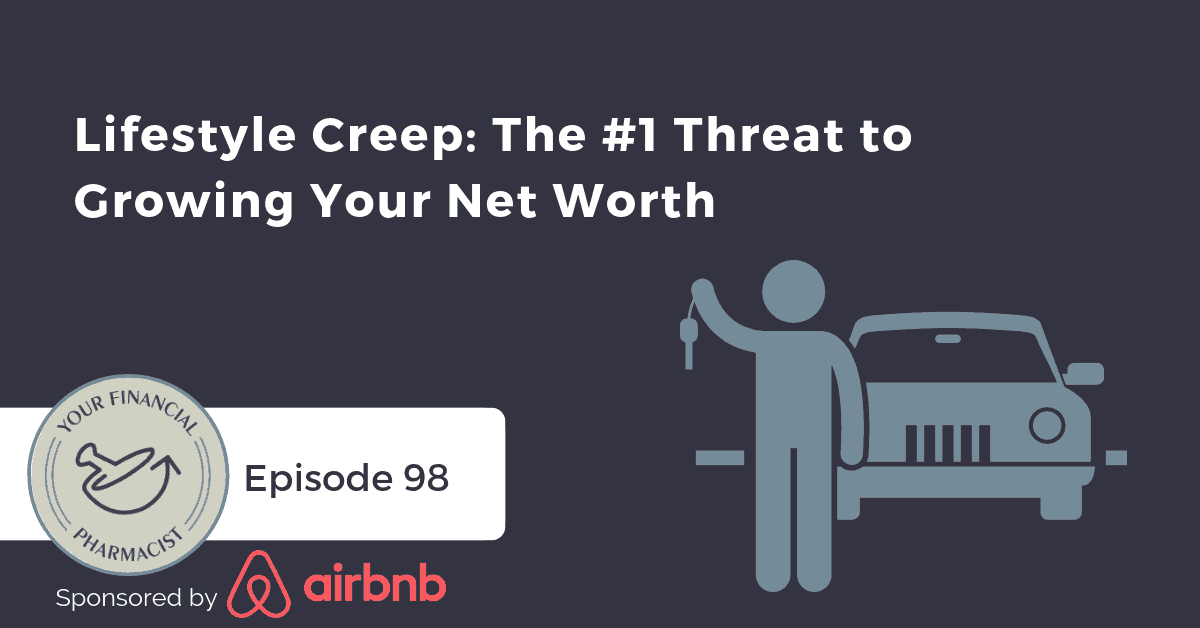An Interview with Dr. Suzanne Soliman: Founder of the Pharmacist Moms Group
Dr. Suzanne Soliman, Founder of Pharmacist Moms Group, joins Tim Ulbrich to dive deep into her motivativation for launching the group, resources the group offers, where this movement is heading and how she carves out time for her business.
About Today’s Guest
Dr. Suzanne Soliman earned her PharmD from the University of Illinois at Chicago in 2004. She then completed a residency in primary care with an emphasis on education at Midwestern University Chicago College of Pharmacy and a teaching fellowship at the University of Illinois at Chicago College of Medicine. Suzy worked as a clinical pharmacist, a medical science liaison and national field team educator prior to becoming an Assistant Dean of Academic Affairs at the University of Illinois at Chicago College of Pharmacy. She most recently was an Associate Dean at Touro College of Pharmacy New York and an independent pharmacy owner.
Suzy has 75 publications and has presented at numerous national meetings. She is a Rufus A. Lyman award recipient which is granted for the best manuscript published in the American Journal of Pharmacy Education. Suzy has served as a medical expert on a number of pharmacy issues and has been a reviewer for Annals of Pharmacotherapy and Currents in Pharmacy Teaching and Learning. She has been quoted in “Crain”, “Chicago Business Magazine” and “Time Out Chicago”. Currently, she is the Chief Academic Officer for the Accreditation Council for Medical Affairs (ACMA). Her areas of interest are assessment and development of medical affairs professionals.
Summary
Dr. Suzanne Soliman began the Pharmacist Moms Group after feeling guilty for missing her son’s baseball game. When training to be a pharmacist, so many had said that it was a great career for moms because it had such a great schedule. Conversely, Suzy found that she was working late nights and weekends which caused her to miss her children’s events and games. After not being able to sleep one night because of the guilt, Suzy created the group on Facebook because she wanted to connect with other pharmacist moms who were experiencing what she was. Today, the group boasts over 25,000 members.
The Pharmacist Moms Group offers several resources to its’ members and focuses on creating a strong support network no matter what phase of life you are going through. The Pro Group Membership is now offered which includes resume review, expert talks, continuing education credits, and additional support. The group also offers discounts on two board certifications.
Suzy didn’t expect the growth that the group has seen and hasn’t put in any money to advertise. It has simply grown from the support that is offered to one another. There are 8 moderators and admins that are involved with the Facebook group. A Director of Research has been added to the leadership team to focus solely on research. Although she feels that there is never enough time in the day, Suzy finds time to work on this movement in the early morning or evening when her children are sleeping and answers emails whenever she’s in line waiting for something.
As far as personal finance is concerned, Suzy sees that the main financial challenges the group faces are regarding student loans and 529s. Suzy’s advice to anyone who is overwhelmed with student loan debt or is frustrated that they aren’t progressing in their financial plan in the way they want is to live within your means, be comfortable with unforeseen circumstances, and get or create a side hustle to bring in extra income.
Suzy is passionate and incredibly motivated to help propel woman in pharmacy in equality and to step into leadership positions.
Mentioned on the Show
- Airbnb
- Pharmacist Moms Group
- Pharmacist Moms Group Website
- Suzy Soliman on Instagram
- Seth Godin
- YFP Planning
- The 4-Hour Workweek: Escape 9-5, Live Anywhere, and Join the New Rich by Tim Ferriss
- YFP 089: From Unemployed to Successful Pharmacy Entrepreneur
- YFP 095: Level Up Your Career: An Interview with Rx Ashlee
- Blair Thielemier
- Ashlee Klevens Hayes
- Tony Guerra
- Alex Barker
- The Universe Has Your Back: Transform Fear to Faith by Gabrielle Bernstein
- Supersoul Sunday w/ Oprah
- Your Financial Pharmacist
- Suzy Soliman on Twitter
Episode Transcript
Tim Ulbrich: Hey, what’s up, everybody? Welcome to this week’s episode of the Your Financial Pharmacist podcast. Over the past year, as you know, we’ve been featuring several inspiring side hustle stories — shoutout to our team member Tim Church, who’s been leading that — as well as several entrepreneurial journeys. And we have another great one for you today. I’m excited to welcome Dr. Suzanne Soliman to talk about her career journey, her work in founding the Pharmacist Moms Group, and to discuss the financial challenges and questions that are top-of-mind for their 25,000+ members. So a little bit about Suzi before we jump into the interview today: Dr. Suzanne Soliman earned her PharmD from the University of Illinois at Chicago in 2004. She completed residency training in primary care with an emphasis on education at Midwestern University Chicago College of Pharmacy and a teaching fellowship at the University of Illinois at Chicago College of Medicine. Suzi worked as a clinical pharmacist and medical science liaison and national field team educator prior to becoming an assistant dean of academic affairs at the University of Illinois at Chicago College of Pharmacy. She most recently was an associate dean at Touro College of Pharmacy in New York and independent pharmacy owner. She has over 75 publications, has presented at numerous national meetings, she is a Rufus Lyman award recipient, which is granted for the best manuscript published in the American Journal of Pharmacy Education. She served as the medical expert on a number of pharmacy issues and has been a reviewers for the Annals of Pharmacotherapy and Currents in Pharmacy Teaching and Learning. She’s been quoted in Crane, Chicago Business Magazine and Timeout Chicago. Currently, she’s the Chief Academic Officer for the accreditation council for medical affairs. Her areas of interest are assessment and development of medical affairs professionals. Suzi, welcome to the Your Financial Pharmacist podcast!
Suzanne Soliman: Thank you, Tim. Thanks for having me on the show.
Tim Ulbrich: Yeah, excited to have you. And now that we know a little bit more about your background, let’s talk about your work in building the Pharmacist Moms Group, which I have to say, you and I talked a couple years ago, so I’ve been able to watch this journey from afar, when you were just beginning, seeing it grow. There’s now more than 25,000 members, and I saw on your website, there’s over 2 million posts, comments and reactions on your Facebook page in 2018. So clearly, you have identified a need, a pain point, and area of interest where there’s others that are desiring for or have a problem that needs to be solved. So tell us a little bit about the Pharmacist Moms Group.
Suzanne Soliman: Sure. So thank you for the introduction and everything. But the Pharmacist Moms Group, it just kind of started. And I know I’ve talked about this before, but basically, my son, who had a baseball game and I couldn’t attend because I was working, and I felt really bad. You go into pharmacy a lot of times — I know a lot of my mom friends have said this — go in because you hear, oh, it’s a great profession to be a mom, you know? And then what I found was I was working late, I was missing games, I was working weekends, and I felt bad. I couldn’t sleep one night, so I decided to start this group. I went online and invited my friends and just said, you know, “I feel really bad. I feel this guilt, and I don’t know what to do.” And I felt that other pharmacists could relate. There were other moms groups that I was a part of, but I really felt that I wanted to talk to pharmacist moms because they went through similar type of rigorous education or residency or fellowship training. So for me, I felt that I really wanted to connect with other pharmacist moms. And what I found was that a lot of other women felt the same way that I did. And the group has just kind of grown from there. It’s really just been a support group, a group for each other to bounce questions off of each other, whether they’re personal questions, not pharmacy-related, or pharmacy-related. And so we’ve kind of just grown from there and you know, really learned from one another.
Tim Ulbrich: I think when you say “kind of grown,” I think you’re being humble, which I appreciate. But “exploded” might be a better word. But I think clearly, you’ve got great brand recognition with what you’re doing. And I love that it’s not just about growing a business, growing a brand, like you’re doing it out of obviously motivations of developing a community and support and resources for one another, something that you felt like you needed and obviously others, that has resonated with. So let me ask you this, so you mention on your website that the goal of the group is simple, the Pharmacist Moms Group, to create a supportive community full of cool resources for pharmacist moms. So what does that practically look like? If somebody were to come to your website or join the Facebook group or the community, what exactly does that look like in terms of the community and the resources that you offer?
Suzanne Soliman: You really hit the nail on the head because I think for me, I’ve always been passionate about women and pharmacy and that entire area. I mean, it just speaks to me. I love it, and I’m passionate about it, and so what I found was that what our group offers — and we’ve evolved. So you know, initially, it was just kind of questions. And then someone said, “You know what? I’m learning so much from this group, why don’t we earn Continuing Education for some of these posts?” So we’ve partnered with a CE company, and we’re now earning Continuing Education credits. We’re also a supportive network, so we’ve had pharmacists going through divorce, going through loss. We’ve tried to connect — when there was a pharmacist who was actually shot working in the pharmacy, we tried to raise money for her and her technician. We’ve really tried to support one another throughout our careers. There’s new moms on there, there’s mothers who are grandmothers now who are on there who’ve gone through a lot and can offer a lot of experience and knowledge to one another. And we offer a pro group now where you get a resume review included. We have a book club. Just mountains and mountains of different areas. And we’ve also started these little subgroups now because the group is so large. So we have an independent pharmacist moms group, so if you own your own independent or you’re thinking about it, and the hospital pharmacy group. So we’ve kind of started forming these smaller communities within this large community.
Tim Ulbrich: So for those that are listening that haven’t already checked out or aren’t aware of what you’re doing, head on over to PharmacistMomsGroup.com or certainly the Facebook group I think is a great point to jump in, lots of different areas. I know you’re active on Instagram and others as well. So I want to talk a little bit from a business perspective. You know, as you’ve experienced such a significant growth in a short period of time — and I can tell that you’ve evolved, you know, when you think back to your son’s baseball game and when this initial idea came to be, could you have envisioned what this looks like right now? I mean, did you see the vision and it was just a matter of time to build it? Or has this really evolved over time as you took one step and then you identified another need, another need and then another need.
Suzanne Soliman: Yeah, I think it’s more of the latter. So I did not expect this at all. I always tell everyone, I haven’t put in any money for advertising. This is really just a community that’s grown from the support that we offer one another and from being kind to each other and trying to help each other and really be there for one another. And it’s evolved. So like I had mentioned, when someone brought up the idea of the Continuing Education, we’re like, you know what, that’s a good idea. Let’s try to do that. Or if they brought up the subgroups, you know, I have a question, but I really want to group it or send it only to these pharmacists. So we’ve really evolved. And one of the things that was great that we identified from the group was that women were graduating for the past four decades at higher levels than male pharmacy students. So we’ve graduated more and more female students. But we didn’t really recognize where they’ve come. So we established the first Women Pharmacists Day last year, and it will continue this year. So again, it’s just been — I want to say evolving throughout this time. And it’s been great. It’s been a lot of fun, I’ve met a lot of great people. I’ve made a lot of new friends. And I am just so passionate about this area, and I think that it’s an area that we really need to provide support for. We need to remember that there are women who are working retail and at a retail chain store, and they might have babies at home, and they need to pump at work, and there’s no place to pump. We need to be their voice, we need to let everyone know about that.
Tim Ulbrich: What I’ve really enjoyed, Suzi, watching from afar — obviously, I’m not a pharmacist mom, so I’m not in the group — but watching the growth and the interest is that when I hear you talk about the community and supporting one another, I mean, at the end of the day, any great business is built off of providing great value. And you know, I think of Seth Godin, and he talks about the concept of tribe and building a community that is passionate about helping one another and moving a certain issue or advancing a certain topic forward, and I think that’s what you’ve done so well here. And I think you and I both would agree on this, at the end of the day, if you can find something you’re really, really passionate about, and it can empower and help other people and you can ultimately make a business of it, that’s a win-win all around. And I think that that’s what makes all of this so much fun. So talk to me a little bit about the business model. So we may have people out there listening to this podcast thinking about, hey, I’ve got this great idea, and maybe it involves community directly, maybe it doesn’t. But ultimately, even though you grow something, you’re investing time, you’re investing some resources, obviously probably time may be the most significant one, but at the end of the day, as you think about this in terms of a business for the future, what does the model of this look like for you in terms of either sponsorship for the pro group? So talk to us more about the business model of Pharmacist Moms Group.
Suzanne Soliman: I’m still unsure of the actual business model. I didn’t set out for it in that way, but ultimately, you’re right. It takes hours and hours of work, so the main thing is that we have moderators and admins, and I have a great group of pharmacists that I’ve met who are really involved. And right now, it’s about the time and energy that we’re putting into the group. So I think that there are so many of us now. There’s like eight of us, actually, and we actually have one woman who’s focused solely on the research aspect. So for me, it’s also about the research part of the group. As a former professor and administrator at two colleges — or three colleges of pharmacy, I understand the importance of data and having the data behind it. And with numbers where we hit 25,000 pharmacists, surveying them, understanding their needs, presenting this at national meetings, talking about what people out in the field are experiencing that those working in a different area might not realize that they’re experiencing. So I think for me, that’s been an area that we’re planning to focus on. So one of the moderators now in our group, that’s her area. She’s kind of the Director of Research. Her name is Eva Ferris-Colon (?), she’s going to be kind of the Director of Research for the Pharmacist Moms Group. And anyone who’s interested in studying or surveying us and finding out about different areas, so that’s definitely something that we’re planning. And for me, it’s really going to continue to evolve. I think that ultimately, my goal for this group is really to empower women pharmacists and help their careers, help them in their careers, help them propel their careers, help them answer questions so that they don’t feel alone. I know myself, sometimes you’re alone in a pharmacy. You might be working only with technicians. And when I say “alone,” like without peers at a similar level. So you might have techs that you’re working with, but you might not have another pharmacist to bounce a question off of or you might be working on a team in a hospital, but you might not have that pharmacist with you as well. So for me, that’s really where we’re going. Facebook asked us — now going back to the business question — so Facebook actually approached us and they asked us to start this subscription model. So we started the pro group, and it’s been great. Really, within that group, we’ve incorporated a lot of the Continuing Education, the resume review, different ideas, bringing experts like yourself to come and talk to the group, which has been great. And I think that’s where I see the business for the Pharmacist Moms Group going is that we’re kind of a one-stop shop where you can hear from these experts, you can have your support group, you can have your laughs, your jokes, and you can earn your CE and kind of do everything at one point. And if you need a resume review yearly, that’s included too. So that’s kind of where I see it going.
Tim Ulbrich: Yeah, I really like what you’re doing with the pro membership concept. I think that’s a business model for others to think about is that you’ve got lots of resources and opportunity for people to engage and develop a community that could happen for free, but also, there’s a subset of people that want to engage at a different level. And I think again, you know, it’s an investment of time and resource and other things. And so I think your pro membership option allows that. And so, to put a plug in for that, if you go PharmacistMomsGroup.com, you’ll see information on there about the pro membership. It’s $59.99 per year, and it looks like there’s a coupon code, SAVE10 for $10 off your first year. And so as I understand it, Suzi, essentially then there’s a package of resources or additional benefits that people get in the pro membership that they may not necessarily otherwise get. So member-only CEs, monthly member-only live sessions, live trainings, you mentioned the resume review, exclusive discounts, and so I think that model is something to consider for others that are of value and different options for their business as well.
Suzanne Soliman: Yes. We actually recently just partnered with two — so we have two different board certifications that you can get a discount on too, so the board certification for MTM. If you’re a member of the pro group, you can get a discount on it. Board certification for medical affairs, if you’re a member of the pro group, you can get your application fee waived. So there’s different benefits as well. And then we partnered with Mama Jamas, and they’re a company —
Tim Ulbrich: I saw that.
Suzanne Soliman: Yeah, so they offer — they actually started out in Nordstrom, and they have this amazing clothing line, and so we get discounts for that. So there’s a bunch of different areas that we’re able to offer discounts for for pharmacist moms.
Tim Ulbrich: So let’s talk for a minute about personal finance as it relates to the Pharmacist Moms Group. And I know you and I, as you mentioned, have partnered on several education sessions, actually doing one this afternoon, which I am excited about for your pro group. And based on these sessions, the feedback that I’ve seen and seeing the mention of personal finance as a topic of interest on your website, you know, I presume this is a topic that’s frequently discussed among your community members. So what are some of the financial challenges that you see your community is facing?
Suzanne Soliman: So I think the No. 1 thing that I always see posted is really to do with student loans and paying them off or not paying them off. And there’s so many people who have — they do have the money to pay it off, and then they’re wondering if they should or if they should just wait. So that’s the first thing. And then the second thing is more my personal question that I would love to ask you — and I do see it posted from time-to-time, but it’s really related to 529s for children because for me, my husband and I have put in money for our children into them, but I always wonder if we’re wasting our money putting it into the 529 because what if our kids, for example, get a scholarship? Or what if another child decides they don’t want to go to college? And what happens to our money? So I guess I’m always hesitant when we do it. I understand the tax benefit, you know, but then I’m always nervous about well, what if in 10 or 15 years, this child is like — I don’t know, something happens that’s different than what we thought of.
Tim Ulbrich: That’s a great question, actually something my wife and I have talked a lot about. And let me just address that briefly because we really haven’t talked about 529s on the podcast a whole lot. So this is a good opportunity to do it. And actually, I think that was one of the questions submitted by your members that we’re going to address this afternoon in the Facebook Live as well. You know, the reason I struggle with 529s — and I will say my wife and I, so we have contributions for all three of our kids in there right now. I would say we’re kind of meddling in the middle. Like we really haven’t gone all-in and in part, for us, what I struggle with to the 529s is certainly a great tax advantaged savings vehicle, it essentially operates like a Roth IRA for college. So money you put in, it’s already been taxed, and it’s going to grow, grow tax-free. You can pull it out as long as you’re using it for educational benefits, which is pretty broad. I mean, it could be tuition, it can be board, it can be books. And one of the advantage, especially if you have multiple children, is the opportunity to transfer it within the family. And I believe within siblings, so like I could transfer it to my brother’s kids, for example, if for whatever reason, my kids weren’t going to use it. So let’s say my oldest son decides not to go to school for whatever reason or he gets a scholarship, but my other two do, I would have the option to transfer it. So there is that flexibility, which has the advantage. The thing I struggle with, Suzi, a little bit is what does the future of college education look like?
Suzanne Soliman: Yes, I know. Yeah, yeah.
Tim Ulbrich: I mean, right? So you know, I know you have your oldest is 15, is that right?
Suzanne Soliman: Yeah, so he is. So I guess that’s the thing. So some of the schools — I’m sure you’ve seen this — but in New York now, public education is free. And I don’t live in New York, but I’m wondering, you know, will that happen in other states? Will that happen in the state I live in? Especially my daughter, my youngest, my daughter is 5, and who knows what’s going to happen in 13 years with education? And then my 15-year-old is — he has a disability, so sometimes I wonder with him, he might not go to school. So then what happens to that money? So I wonder with all of that as well.
Tim Ulbrich: Yeah, I mean, you’re thinking through it the exact same way my wife and I are. I mean, with I think kids that are closer to college, the system in three or four or five years may very much look like today, but what will it look like in 10 or 15 years? Will free college be normal? Will it keep going up at rates that far outpace inflation and now all of a sudden, we’re going to be up a creek because we didn’t save as much? And I think that’s why we are kind of meddling in a little bit of the middle. We’re contributing, but I’m hesitant to overcontribute. You know, part of my thought is that on some level, if somebody’s in a position where they have no student loan debt, maybe even a house is paid off or close, you know, other goals are on their way to being achieved, retirement, other things that there’s an opportunity to cash flow some of that or even look at alternative options for taking on lower interest rate debt they could pay off. The other thing is, while I would never favor this option, there’s an option to pull money from a Roth IRA for educational expenses that doesn’t get hit with a tax in terms of a penalty, that 10% penalty. So that’s another alternative option. So my wife and I are looking at a combination of since we don’t know what it’s going to look like, we don’t know scholarships, free, all that kind of stuff, maybe they don’t want to go to college, you know, we’re going to have a little bit there, but we’re also going to hopefully cash flow some of that along the way. The other thing, Suzi, I’ve seen — I don’t know if you see your community talking about this — is that I think a lot of pharmacists, especially if they’ve come out with let’s say $150,0000-200,000 of student loan debt, they tend to overcompensate for their situation at the expense of their own other financial goals. So for example, somebody may say, ‘I came out with $200,000 of debt. I absolutely never want my kids to experience any of that. Therefore, I’m going to pay 100% of it,’ but that’s at the expense of saving for retirement or making sure that we have a solid emergency fund, or they’re still carrying around high interest rate debt themselves, and they might be on one hand helping the future with their kids’ college, but on the other hand, overcompensating and hurting their own financial plan. So I think certainly for each person, it’s different. But I think that’s a word of caution I’d give to any of your audience members or our listeners at large is that I think there’s a tendency to overcompensate for what we experience personally and really to try to take a step back objectively and think about it in the context of other goals.
Suzanne Soliman: Yeah, that makes sense. That makes sense.
Tim Ulbrich: So Suzi, we often talk with pharmacists, they could be moms, dads, singles, it really doesn’t matter, and hear that they’re overwhelmed with student loan debt, they’re frustrated that they’re not progressing as fast as they would like to be with their financial plan. Based on your own personal experience or what you’ve seen as success stories within your community, what advice would you have for the pharmacist moms out there or even the others at large in terms of those that are facing multiple competing financial priorities and how they can begin to tackle that? Or where should they start in terms of their financial plan?
Suzanne Soliman: So I think that for me, I’m still paying my student loans. But my student loan rate when I graduated — my interest rate is unbelievable. It’s under 2%.
Tim Ulbrich: Crazy.
Suzanne Soliman: Yeah, it’s crazy low. So I’m personally the person who’s waiting the full 30 years, given my rate. And I think that you have to be comfortable — if you are waiting, you have to be comfortable with some level of debt where some people I know, they have the 1%, and they’re just like, no way, I’m going to pay that off. I can’t handle having the 1%. But I’m like, but if you put your money somewhere else, you’re going to earn more than 1%. You know? So you have to feel comfortable with it. If you’re battling it, I mean, for me, I look at if something has a high interest rate, just pay that off first or something that’s smaller, you’d want to pay that off first too. But I think for me, what I’ve realized is that I think sometimes when you’re in pharmacy school, you’re like, I’m going to graduate, and I’m going to go make these big bucks, and once I graduate, I’m just going to be earning so much that I can pay everything off. But then life happens, right?
Tim Ulbrich: Yes.
Suzanne Soliman: And you have to get a car, and you want a new car because now you’re Dr. Such-and-Such, and you might have done residency. And for myself, my friends were earning six figures, and I was earning $32,000. That was a big difference in salary. So I think that life happens, and different things happen, and it’s really about — I mean, for me, it was trying to live within your means for awhile and then realizing again, then you have children that might come along, might or might not, you know? And you have other expenses. I mean, I was just saying that actually on the phone with my mom today. I had fixed my one car, you know, one car got hit on the garage, and I had to go fix it. And then what happens, I was like, OK, fine, that happened. Then my boys were outside playing basketball, and of course, they break the side view mirror with the basketball. I’m like, I just think that my miscellaneous budget is going to be under this for this month, and then something happens. That’s how life is, so being comfortable with what comes at you and just that we have to all be comfortable with that. You don’t know what the unforeseen circumstances that might come your way. So I don’t know, for me, I don’t necessarily think you have to pay all of your student debt off immediately, but if you do, I’m sure that’s a really, really great feeling. But if there are other things that are more important and then the second thing is always having a side hustle or something else. I mean, when I was in residency, I was still working for one of the chains, you know, kind of as a floater. And then I always tried to do something else or tried to have a couple incomes or sources of income. So that’s always been very helpful for me, at least. It might not work for everyone, but for me, it’s helped.
Tim Ulbrich: I think so. And I think especially, you know, obviously it’s well documented what’s going on in the job market and in many parts of the country, 32 is the new 40 in terms of committed salary, and we’re even seeing some compression in that hourly rate for a pharmacist. But I think a side hustle — not only from the financial piece but also from the pursuit of something you’re passionate about. I mean, there’s something to be said for an area, whether it’s a creative outlet, whether it earns money, maybe a little bit, maybe a lot of bit, to be able to get energy from that I think is one of the often overlooked aspects of a side hustle. So Suzi, let me ask you for the dads that are out there listening to this episode, what advice would you have in terms of how they can best relate with and effectively work with their significant other when it comes to this topic of money? Probably one of the most common questions we get is, hey, I’m really trying to progress the financial plan, but I feel like me and my spouse aren’t on the same page. And we know that certainly is a topic that’s difficult to navigate. So any words of advice from either you personally or what you’ve heard in your community of how somebody may be able to effectively work together with the spouse or significant other?
Suzanne Soliman: You know, OK, I am no expert. But I think that in general, from what I know of either from myself or my friends or within my group community, typically, there’s one person who spends more, and there’s one person who doesn’t. So you know, there’s one person that’s a saver, and there’s one person that’s the spender. And I actually don’t really know many couples where they’re completely aligned. And I think that’s any relationship that you’re in. If you’re in a committed relationship, you just have to find balance between you because you’re never going to — whether it’s related to finance or anything else, you’re not going to find someone that matches your ideals perfectly. So going back to the dads out there, if your wife spent something extra on something, talking about it, but understanding that maybe she has a different level of comfortability. Or vice versa, maybe the dad is the spender, and the mom is the saver, and so understanding that the level of comfortability, having conversations about that I think are important, about levels of risk. I think risk is a big one. So I grew up in a family where risk wasn’t — it wasn’t as tolerated, maybe. So I grew up, my parents taught me, never have credit card debt. If you charge something on a credit card, you have to pay it off immediately. If you don’t have enough cash in the bank, you don’t use it and you don’t use it at all. So I think I was very risk-averse. So even certain things, it’s hard for me to stomach, like purchasing a house, I’m like, oh my gosh, that’s a really big amount of debt you’re going to take on. But then I realize that you know what, that’s just because of how I grew up and things that I was told. But it doesn’t necessarily mean that — some debt is good. And that’s where I began to become comfortable, like I had mentioned, with my student loan debt and saying, you know what — and that’s where I started to invest in the market and become familiar with the market, become familiar with mutual funds. I actually have taught my 7-year-old — he’s 7, and I’ve been teaching him how to check the market and different things.
Tim Ulbrich: That’s awesome.
Suzanne Soliman: So it’s been fun with that. But yeah, I think when it comes to relationships, I think the finance part of it — yeah, you generally hear that’s what people disagree on. But I just think that you have to understand that most couples, whoever you’re with, you’re probably going to disagree with them on certain things. I mean, eventually, you’re going to come to an agreement, but if she really likes those shoes or if he really likes that new electronic, you’re both going to have to be OK with that, you know?
Tim Ulbrich: Yeah, and I think to highlight what you said there too is also just being aware of that and appreciating what the other person is. I think that there’s no good or bad in a spender and a saver. I think each of them has benefits, and I think often when you have those different money personalities, I think that can be a powerful combination when you get to the point of appreciating it really challenging each other in both of those areas. And I think risk is a great one. You know, you take the idea that you have two people that are very conservative with their financial plan, that may have some significant upsides in some areas, but it also may put a ceiling in terms of what you’re able to really do and grow long-term with your wealth and achieving the other goals that you want to achieve.
Suzanne Soliman: Definitely. I think for me, like what changed my mind was initially, I was doing the savings and my father was saving everything, and he had plans to retire at 55 and he was investing in his 401k’s and would sometimes stay at a lower-end hotel because he wanted to just save. And then my dad got cancer, and he died, you know, quickly. So he never got to enjoy his money or experience it or see it, and what’s interesting is my mother-in-law also passed. She was a teacher, she had a pension, she had everything. She passed at 62 from a brain tumor. So I guess I saw loved ones who never got to get to retirement and enjoy, and that’s what also shifted me to begin to see that, you know what, sometimes, it’s OK to spend. It’s OK to splurge because we’re not sure if we’re going to get that day.
Tim Ulbrich: Absolutely. Yeah. And I want to give credit here — Tim Baker does a great job of this. He did with my wife, Jess, and I and others that we work as well, just asking those kind of questions and playing those scenarios out. I mean, if you were to really conservatively save for 40 years and then for whatever reason weren’t able to enjoy it, health, something unexpected, whatever be the case, I mean, what is the point of all of this to begin with? So really identifying that why, that purpose, and I think it’s about balance, right?
Suzanne Soliman: Yeah.
Tim Ulbrich: It’s about not spending outside of your means all the time now, kind of the YOLO concept, but also it’s not about just squirreling away money for 40 years and then hoping you’re healthy enough to be able to enjoy it, so I like the concept Tim Ferriss’ 4-hour workweek, he talks about mini-retirements and this idea of really enjoying this time throughout your career. And I think you can still wisely save up for it and spend it, and I think you can accomplish a little bit of both of these along the way. So let me ask you a few questions in terms of thinking about your business, the direction going forward, and how you balance all of this in terms of full-time job and business. But first, let me start with, you know, we both know well that starting a business, it’s obviously exhilarating, but it’s also difficult. It can be a grind at times, you know, in terms of the time you’re spending, especially as you’re balancing family activities and other things. So what keeps you motivated as you continue to press forward with the Pharmacist Moms Group and that growing while you’re also managing your full-time job?
Suzanne Soliman: So for me, it’s really about my passion. So for Pharmacist Moms, it’s just what I want to do. It’s kind of what I’m really passionate about: women and pharmacy and making a difference and seeing changes and bringing things to fruition. For me, it’s what I wake up early about, and I can’t wait to look at different things related to pharmacists and women and read papers about it, and I get enjoyment from it. So I’m smiling here because this is — I don’t necessarily think of it as business. I really think of it as we’re a movement, you know, of women who are going to change pharmacy for the better to really help pharmacist women and propel our careers, to just do a lot. So you know, it’s just my passion. And I think when you’re passionate about something, it changes everything.
Tim Ulbrich: So how do you, Suzi, how do you practically carve out time. It’s a question we often get, hey, I’m really interested in starting a side hustle, but with family or job, I just don’t have energy, I don’t have time. What has worked for you in terms of being able to prioritize and cut out time in your schedule to work on the Pharmacist Moms Group?
Suzanne Soliman: There’s never going to be enough time. Ever. For me, I wake up early. So you know, I try to wake up by like 5 o’clock in the morning, before my kids are awake, so I can get some work done during the quiet times. Or I’ll stay up late and get things done when my kids are sleeping. So for me, something’s got to give, right? So for me, it’s been my sleep. So I don’t necessarily do that. I never watch TV. I mean, I rarely if ever, ever, ever watch TV. And I know that’s not great, but I just don’t watch anything on the television except I hear what my children are watching Teen Nick or they’re watching Disney Junior, and I hear that going on in the background. So I know what they’re watching. But I don’t. So for me, it’s just making the time. So if I’m picking up my kids from school, a lot of times, I’m on my phone, checking my email while I’m waiting for them to come out. Or in the morning, when I’m waiting for my drink if I’m at Dunkin Donuts, I’m checking things. I’m sure — there is time somewhere. But something’s got to give. And so during my workouts, when I work out, I listen to podcasts so I’m learning and I’m learning new information at all times. For me, that’s what works. And I just think, again, there’s never going to be enough time. And constantly, if you ask my husband, that’s literally all I ever say is, “There’s not enough time in the day,” like, “I have so much to do,” so it’s really about prioritizing what needs to get done. And I think I said this to you earlier, like I’m really bad at checking my email. So if anyone emails me, I’m so sorry. Like sometimes it takes me a week to get back. And sometimes, I never get back. And it’s just because I look at it — text me if you really need to find me, text me or Facebook Messenger me. I’m a little bit more responsive on both of those, but it’s so hard to keep up. I get so much spam email too that it’s like, I just have — if you look at my inbox, I’m embarrassed to say this, but my inbox on my iPhone, I think it has over, yeah, 228,000 unread messages. So it’s crazy.
Tim Ulbrich: Well, what I like about that — I know I mentioned this to you as well before we recorded — is that, you know, I often feel that itch with email as well, but I try to sometimes take a step back. And if you think about vision of what you’re working on, your movement, or you think about legacy, which I’m going to ask you here about in a minute, you know, at the end of the day, those are the things that you’re going to remember and that are going to have an impact, right? So certainly, email is a necessary evil at times, but it is so easy to spend a day in email and actually do nothing to move the business forward or move the movement forward. So I think that for those that are out there — and this is true with a website, you know, somebody’s trying to start a business and they’re focusing on business cards or website design or all these things, it’s easy to get sucked up into these details that may not actually help you progress and move things forward. So legacy — let me ask you about legacy. And I asked this to Blair Thielemier when I interviewed her on Episode 089 and Ashlee Klevens-Hayes on Episode 095, and it’s one of my favorite questions because I like to hear what people are thinking about in terms of legacy. And I think at the end of the day, this is really one of the things that matters when we think about why are you doing all of this to begin with. And you’ve answered this a little bit, but I’d like to hear a little bit more on this as well. So when you think about the work that you’re doing with the Pharmacist Moms Group today, obviously, what you’re doing is going to be left behind for others to build upon or for others to consume. And for your kids, ultimately, to admire and say, “Yes, that was my mom who did that.” So as you think about what you’re doing with the Pharmacist Moms Group and we fast forward 30, 40, 50 years, what do you want the legacy to be with that work?
Suzanne Soliman: For me, I think that we’ve really helped propel women in pharmacy to really show equality, I want to say, that there’s certain areas that I think that we still need to work on, whether it’s women in leadership positions within pharmacy or some areas of salary as well, especially in academic centers, females are paid still less than males. My goal is to raise my children to be good people that would make — I’d feel like that’s the most important thing on a personal level is that my children grow up and that they’re honest and kind human beings and that they care about others. That’s the ultimate legacy or I think the ultimate way to raise my children. For the group, it’s really just to support women in pharmacy to hopefully one day say that we were able to change the percentage of U.S. college of pharmacy deans, 25% right now that are women, to 50%. I think that is one of the major goals. Or independent pharmacy owners, that more of them are women, that more management, more leadership, that one day we’ll have a retail chain pharmacy CEO that is a female. I think that all of those areas are definitely important for me. They speak to me, they speak to my group, having better maternity benefits for a lot of these women that might have to go back to work right away, that they don’t have a second income to rely on, and they are the breadwinner, and they have to go back, but they’re facing issues with raising their children and working. And I think there are so many things. I think that ultimately, what I would like to create is a group of women that care about one another, that support one another, that bring each other up, you know, that we all really will support one another no matter what. I’m really big on that, on being loyal to one another and helping each other.
Tim Ulbrich: And you’re definitely doing that. So that is awesome, and I appreciate you sharing some of that. And I would encourage for those listening that are thinking about starting a side hustle, starting a movement, starting a business, whatever you want to call it, taking some time to reflect on that question of, what is the purpose of all of this? And if we fast forward 20 or 30 or 40 or 50 years, what is the legacy that you hope to leave in that journey? Because I think that as you get into the details and you get into the weeds and you’re trying to balance schedules and you’re getting up at 5 a.m. and you’re maybe sacrificing time with family at times, really keeping that front and center of the purpose of what you’re trying to do is incredible. And Suzi, one of the things that I’m excited about is we have this kind of movement and pharmacy entrepreneurship that’s going on. I think about the work that you’re doing, I think about the work that Ashlee Klevens-Hayes and Blair Thielemier, Tony Guerra, Alex Barker, I mean, the list keeps going on and on, but thinking about there are certainly as we think about the kids that all of us have, they’re observers of what’s happening. And my kids are young enough, they may not necessarily articulate it, but it’s going to be fun to see what that next generation is going to do as they certainly are going through this time of being a part of it, either indirectly or directly. Last question I have for you is on your website, you had mentioned one of your favorite quotes is “Live life as if everything is rigged in your favor.” Tell me more.
Suzanne Soliman: So that’s from Rumi. So I’m a big believer in everything that might happen, you have to find the good in it. So there have been things that have happened in my life, even decisions or choices that I have made that might not have been the best decisions or might not have been — or choices or things that have happened that have been very difficult. And I think, though, you’re faced with a choice at that point. And you can either feel bad about it — and I did, and I have felt bad — but I think really when you think about it and you think that maybe this happened for a reason, you know, whether it’s — it could be anyone about losing a job, losing a parent, losing someone close to you. It could be going through a divorce, it could be, you know, just different areas, struggling with anxiety, struggling with depression, struggling with substance abuse. It could be any area. But remembering that whatever you might struggle with — it could be struggling with finances, you know, that maybe this happened to you for in your favor. I mean, it could be moving away to a different area and losing your network of friends and contacts and having to start all over and realizing that, you know, God or the universe or whatever you want to call it, placed you in that position for a reason. And you’re in that position for a reason, and now, it’s really to challenge yourself to find out why you’re in that place and learn from it and grow from it. And I think that that’s the beauty of that quote and how I like to live my life, that no matter what happens, there’s got to be some reason why I’m going through that at that moment.
Tim Ulbrich: Awesome. Thank you. So before we wrap up, is there a specific book or podcast or blog or something that you’re reading or listening to that you would recommend to our listeners?
Suzanne Soliman: So I always recommend this book. I’ve listened to it multiple, multiple times. It changed my life. It is called “The Universe Has Your Back” by Gabby Bernstein. I’m not sure how many people are into these kind of books, but it’s one of the most amazing books, and it helped me when I was struggling at certain points in my life. And I have listened to this book. I actually listen to books more than read them because I just don’t have the time to read anymore. So I listened to it multiple times, so I would recommend that to everyone. And I listen to “Super Soul Sunday” by Oprah all the time, so I’m a big Oprah fan. And anything with Oprah, I love listening to and I’m very inspired by and I find it very inspirational.
Tim Ulbrich: Awesome. Thank you for sharing that. Thank you for coming on the show, sharing the work that you’re doing at the Pharmacist Moms Group. Truly, it has been an inspiration to watch. I continue to look for ways that we can partner and continue to see that group grow and thrive and just congratulations on the awesome work that you’ve done on achieving that mission and vision that you had. So where should our listeners go to learn more about you and the work that you’re doing with Pharmacist Moms Group?
Suzanne Soliman: Sure. They can go right to the website. They can go to www.PharmacistMomsGroup.com, and they can find out more. Or if they want to reach me, they can send an email — like I said, they can try to send an email through that page as well or find me on Facebook or on my Instagram or even Twitter, that I sometimes use as well. So.
Tim Ulbrich: Awesome. So maybe social media instead of email, right? That’s what we learned.
Suzanne Soliman: Yeah, definitely. That’s probably better, yeah.
Tim Ulbrich: Awesome. Thank you again. And for our listeners, if you’ve liked what you heard on this week’s episode of the Your Financial Pharmacist podcast, please leave us a review and rate us in iTunes or wherever you listen to your podcasts each and every week. We’re grateful for your support of the work that we’re doing. And if you haven’t yet, check out YourFinancialPharmacist.com, we’ve got lots of free resources, guides, calculators, tools and checklists to help you on your path towards achieving financial freedom. Have a great rest of your week.
Recent Posts
[pt_view id=”f651872qnv”]

